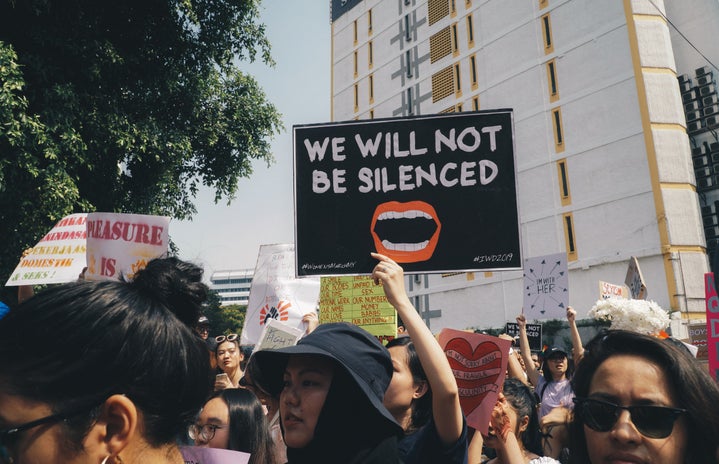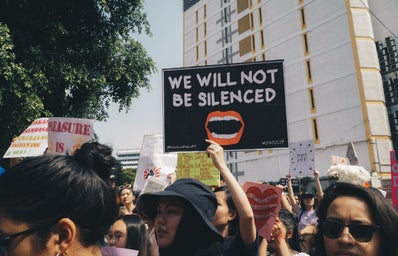Breaking from normality, this week Annie speaks directly and personally about sexism and misogyny in society and on campus in her first instalment of a double feature article…
Within the past week I’ve found myself in multiple instances where the conversation has turned towards misogyny. These initial conversations were unprompted by myself or any other topic controlling influence and, as someone who generally believes in the goodness of humanity to act nobly, I was overcome with disappointment and sadness.
Obviously, I was far from ignorant to the persisting sexism and misogyny in society generally: I’ve known friends and family to be signalled out from a group of men while discussing business plans and told to “wear something nice”. I’ve known women to be targets for alpha male boasting, from superiors regarding private life content intended to intimidate and disarm.
But I had, naively, believed that my own peers were on the whole from a better cut of fabric than generations before having grown up with an awareness of these issues. Of course, as I discussed with Josh Harrap (Engineering student at Loughborough university), the older generations derive no excuse from this reality, but it was more that I couldn’t, and still can’t, fathom, the what must be conscious, utter disregard for acting with empathy and respect.
It is irrefutable that we live in a patriarchy.
And due to this long standing patriarchy – we also have sexism. The ideology that asymmetrical rights between men and women “makes sense”. Sexism is the belief system. Misogyny is the active hostility, and hatred, and abuse, women face as a result of sexist ideologies.
There is an ideological problem on campus (sexism) and one of habitual behaviour (misogyny).
The initial accounts I heard were those of people living in on campus, university owned, accommodation in a flat of outright sexists exercising misogynistic behaviour. The first account of this led immediately to a second. These reports were from complete strangers, and it led me to thinking how many more similar instances have there been?
Perhaps was there yet another within even this small group of five that hadn’t shared because we were ultimately all strangers? At the very least, their other flatmates, equally trapped with few allies, suffering within a majority cohort of sexists. Especially during the national COVID lockdowns (when these cases had occurred) when there was no possible escape from the hostility.
Twenty-four hours later, more blatant, arrogant, misogyny appeared before me as consequence of a male ally (Josh Harrap as previously named) taking to social media to report upon his frustrations. This time round, sexual assault at Loughborough’s SU night – once again falling into a devastating pair in double capacity. A double incident of non-consented contact first upon entering the toilets, and then additionally upon leaving. The perpetrators seemingly lingering during this time with this intent.
Later that night as the housemate of this first victim left to comfort her friend, the same malicious act also by a group. This targeting of women following the recent spikings.
The long-term consequences for every one of these instances cannot be dismissed. Seconds to instigate a detrimental memory that never fully leaves.
Sexist ideology on campus has real, devastating, and unsettling implications of fear and isolation. The selfish, careless, misogynistic behaviour of a few destroying the freedom of many.
Enraged and tired, the same emotions which motivate this article in fact, Josh Harrap posted on his story condemning this behaviour, something I followed up on in a later interview.
We talked at length about the problematic ‘grey area‘ justifications, perceptions of safety, how suspicion causes tarnishing of noble intentions, the visible lessening of bouncer checks and, university responsibility. This discussion even lead to lighter moments, and gratitude, that somewhat restored my belief that goodness does exist in society.
Much lengthier dialogue will follow on these points in my next fortnightly article along will details of conversations with other University of Nottingham students.
*During the hour spent writing this piece I saw another post from an old friend at a London university about the sexual harassment she had received at work the night before*

